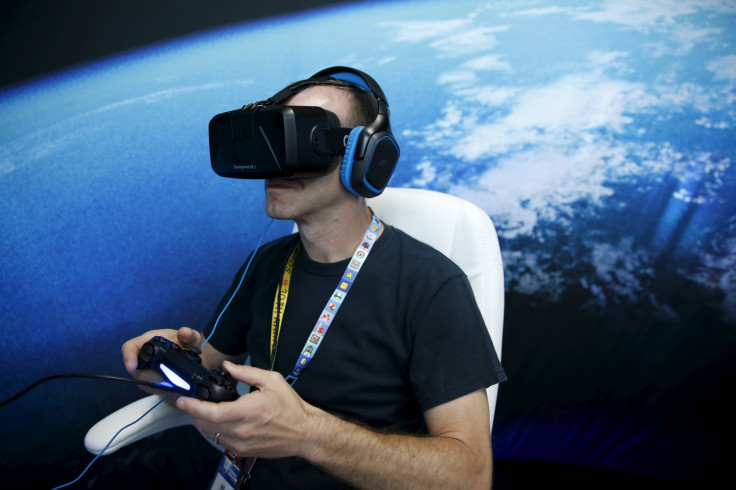Facebook’s Oculus Rift Is Tops With VR Game Developers As Virtual Reality Gets Real In 2016

Virtual reality is here. And soon, the VR games will come. So says the Game Developer Conference's 2016 State of the Industry Survey, which found that 16 percent of game developers are now working on VR titles, up from just 7 percent in 2015.
It's easy to see why: Facebook's Oculus Rift has a ship date, Samsung Gear VR goggles are in stores, Sony has been teasing a PlayStation VR release date for the first half of 2016 and HTC Vive Pre has a rumored preorder date of Feb. 29. The gaming landscape has not changed this much since the release of the Nintendo Entertainment System in 1983. The jump to VR would make video games an immersive experience where the user controls the action.
The GDC polled more than 2,000 game developers on their plans for VR, ahead of the annual conference in March. Among the findings: Of those working on VR games, 19 percent specified they are developing for Oculus Rift, the highest number devoted to a single platform.
The GDC's 2016 State of the Industry acts as a snapshot of what's happening with video games ahead of the conference. Questions include what platforms the developer is currently working on and plans to work on next. Other questions concern their confidence in the growth of eSports or the sustainability of VR. While there is a lot of uncertainty on the consumer side of VR, the developers creating the interactive entertainment are bullish on the new technology.
As for which VR device developers expect their next game will be released on — among all that applied — the Oculus Rift led the field at 20 percent.
The Rift has the advantage of being the first widely available VR headset. The first development kits — given to backers who pledged more than $300 during Oculus' Kickstarter campaign in 2012 — were shipped on March 29, 2013. The second development kit was released in 2014. Oculus also has a robust developers site providing tools and software to creators.
Sony announced Project Morpheus — later renamed PlayStation VR — at the Game Developers Conference in 2014. The Project Morpheus Software Development Kit was released a few months later. After the design changes leading up to the PlayStation, an updated SDK was released in 2015.
The HTC Vive Pre is the newcomer of the group, with its VR headset unveiled in March 2015. HTC has partnered with Valve, developers of "Portal," "Half-Life" and the Steam digital distribution platform, for the Vive Pre. Despite the late start, the HTC Vive trails the PlayStation VR by just one percentage point, 9 percent versus 8 percent. The Gear VR — developed by Samsung and Oculus for mobile use — was just behind the HTC Vive in developer support.
In terms of adoption, the large majority of developers (73 percent) believe VR will match the current install-base of game consoles, around 40 million at the time of the survey, at some point in the future. More specifically, 86 percent of developers believe it will happen by 2030. The questions regarding VR did not include potential hurdles that could limit the appeal of VR. Many people balked at the $600 price tag of the Rift when it was announced, while Sony and HTC have yet to reveal the price of their VR headsets.
With the coming releases of the Oculus Rift, PlayStation VR and HTC Vive, virtual reality will shape the vast majority of gaming discussions in 2016. Also on the horizon is Microsoft's HoloLens, though the company has yet to reveal a ship date.
Whether the cost is too high or there are not enough games to sell new hardware are just a few discussion points that could be answered in the coming months.
© Copyright IBTimes 2024. All rights reserved.





















